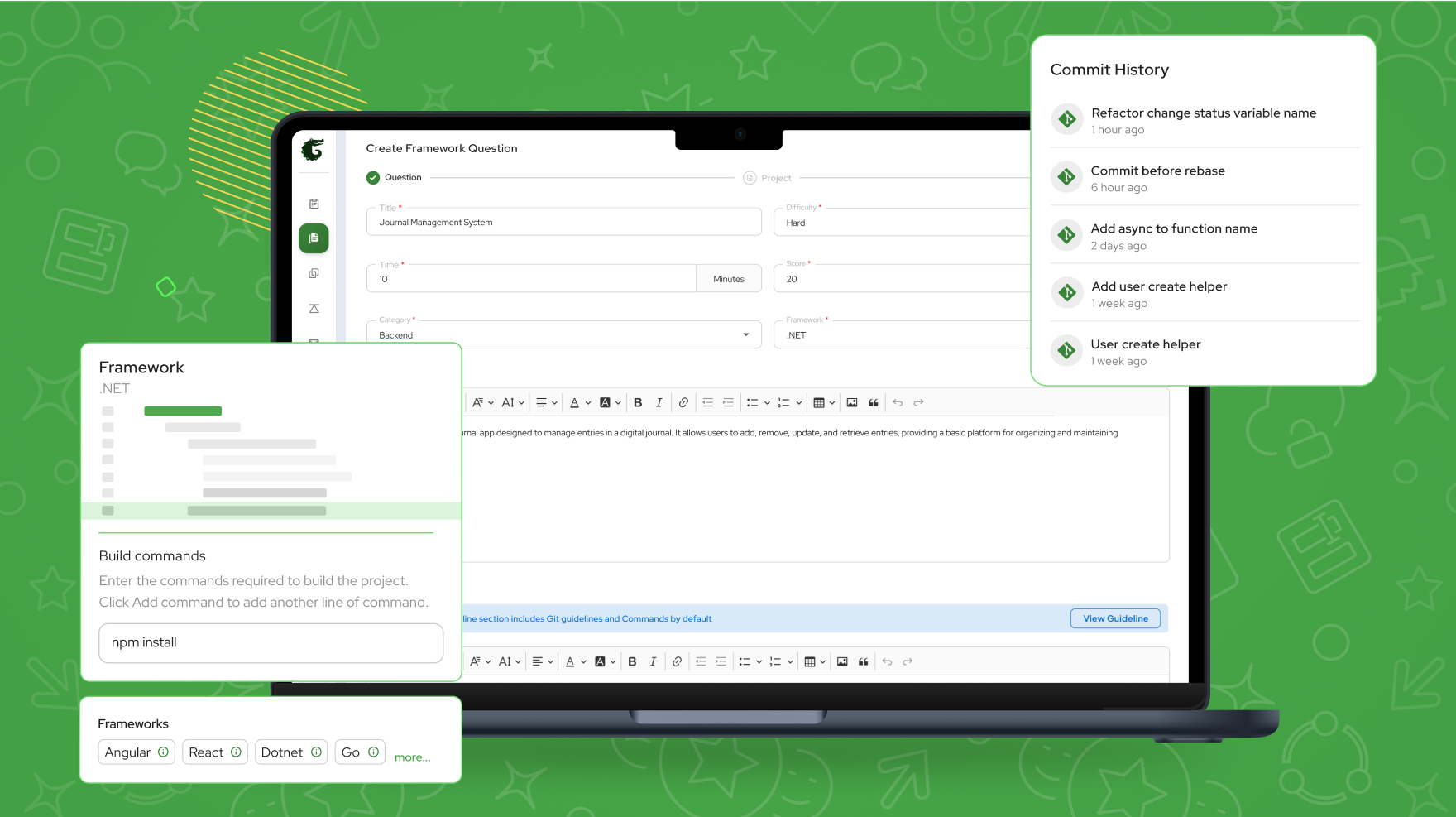Introducing Framework Questions: Assess Real-World Coding Skills

Traditional coding challenges test problem-solving abilities, but they often fall short in assessing a candidate’s ability to build real-world applications. Framework questions bridge this gap by simulating actual development scenarios, allowing recruiters to evaluate candidates on end-to-end development, real-world problem solving, and best practices.
What Are Framework Questions?
Framework questions provide a simulated development environment where candidates get the chance to demonstrate their ability to deal with real-world challenges. It enables candidates to build solutions from scratch, working in an environment that mirrors actual development scenarios. Instead of isolated code snippets, they:
- Set up and explore a complete application environment.
- Use command-line tools, IDEs, and browsers to debug and optimize code.
- Interpret log messages and troubleshoot issues effectively.
- Apply framework-specific best practices to deliver functional solutions.
How to Create a Framework Question
Creating a Framework Question involves three key steps:
-
Define the Question
- Set the title, difficulty level, time duration, and scoring criteria.
- Select the relevant framework (e.g., React, Angular, Node.js).
- Provide a detailed problem description and candidate guidelines.
-
Set Up the Project
- Choose between a sample project template or upload a custom codebase.
- Configure the build and evaluation commands.
- Define read-only files and hidden test cases.
-
Validate and Test
- Verify project execution with the configured settings.
- Ensure evaluation commands assess code quality and functionality.
- Try the question to preview the candidate’s experience.
Benefits of Framework Questions
Comprehensive Skill Assessment
Ensure candidates are evaluated for coding ability, framework expertise, debugging skills, and application setup knowledge. Framework questions help identify candidates who can not only write clean and efficient code but also troubleshoot issues and configure applications effectively. By testing multiple competencies in a single assessment, hiring managers gain deeper insights into a candidate’s technical expertise, making it easier to select job-ready developers and reduce hiring risks.
Customization
Tailor questions to match specific job roles, experience levels, and tech stacks. Questions can be customized, ensuring they align with entry-level, mid-level, or senior developer expectations. Additionally, the flexibility to choose different frameworks makes it easier to evaluate candidates based on the technologies relevant to your organization. This ensures a more efficient hiring process, allowing companies to scale assessments as their hiring needs evolve.
Efficient Screening
Reduce hiring risks by identifying candidates with hands-on experience in your tech stack. Quickly filter out unqualified applicants and focus on job-ready developers by assessing their ability to work with your frameworks and tools. This targeted approach saves time, improves hiring accuracy, and ensures you build a team that can contribute from day one.
Upgrade Your Hiring Process with Framework Questions
Finding the right developer isn’t just about coding skills—it’s about ensuring they can work within real-world environments. Framework questions allow you to assess candidates holistically, evaluating their ability to set up, debug, and optimize applications using industry-standard frameworks. Whether you’re hiring for front-end or back-end roles, this feature helps you hire job-ready talent with confidence.